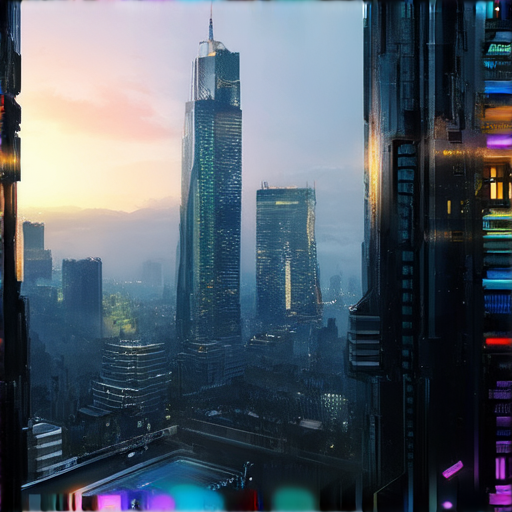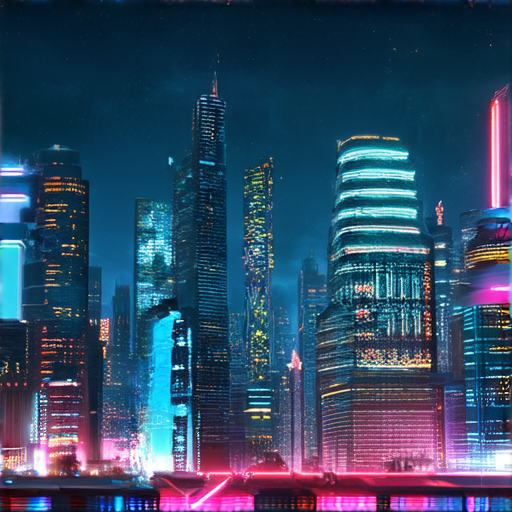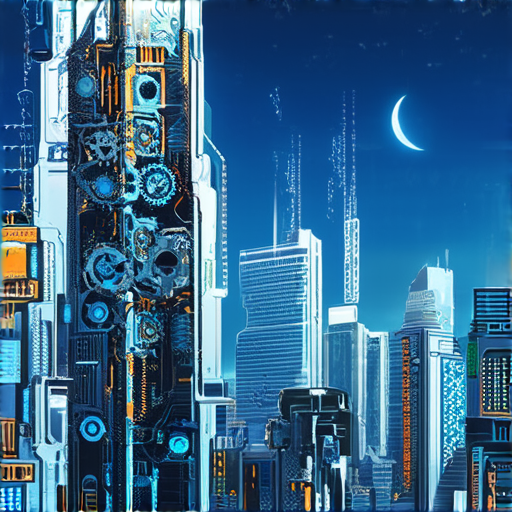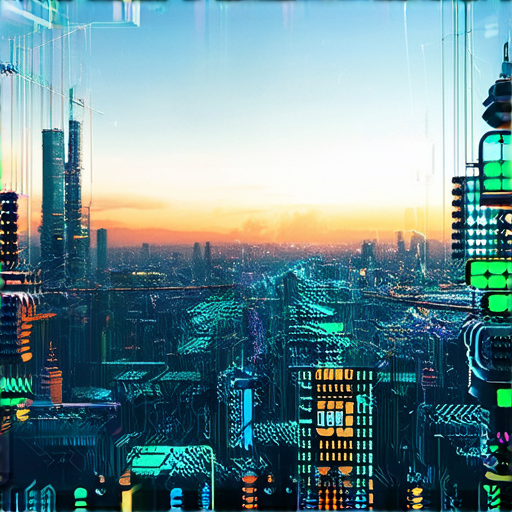Immersive virtual reality experiences are revolutionizing the world of gaming, offering players unparalleled levels of engagement and interaction. However, behind every captivating VR game lies a complex process of development, requiring a deep understanding of cutting-edge technologies and innovative tools. VR game development involves a multifaceted approach, encompassing everything from designing immersive experiences to choosing the right software and engines.

How Are VR Games Developed?
As a developer at Indie Dev Games, I’m excited to dive into the world of Virtual Reality (VR) game development.
-
Design Tools
- Some popular options include:
- Blender: A free, open-source 3D creation software ideal for modeling, rigging, and animating characters and environments.
- Autodesk Maya: A professional-grade 3D computer animation, modeling, simulation, and rendering software widely used in the film and gaming industries.
- Tilt Brush: A virtual reality painting tool that allows artists to create three-dimensional masterpieces in mid-air.
-
Game Engines
- Unity: A cross-platform game engine that supports 2D and 3D game development, including VR and AR capabilities.
- Unreal Engine: A powerful game engine known for its high-performance graphics, physics-based simulations, and advanced lighting features.
- CryEngine: A game engine that offers advanced graphics capabilities, dynamic global illumination, and realistic physics simulations.
-
Development Process
To create immersive VR experiences, developers rely on powerful design tools that can handle complex graphics, physics, and animations.
Game engines are the backbone of VR game development, providing the necessary infrastructure for building, testing, and deploying VR experiences.
The VR game development process involves several stages, from conceptualization to deployment.
- Conceptualization: Defining the game’s idea, mechanics, and art style.
- Pre-production: Creating prototypes, designing levels, and developing core gameplay mechanics.
- Production: Building the game’s assets, implementing physics and sound effects, and polishing the overall experience.
- Testing and Quality Assurance: Ensuring the game meets the required standards for performance, stability, and fun factor.
- Deployment: Releasing the game on various platforms, including PC, consoles, and VR headsets.
Challenges and Opportunities
VR game development presents unique challenges, such as motion sickness, hardware limitations, and player comfort.
- However, these challenges also offer opportunities for innovation and creativity, allowing developers to push the boundaries of what’s possible in VR gaming.
At Indie Dev Games, we’re committed to helping developers overcome these challenges and unlock the full potential of VR game development.
We provide resources, tutorials, and community support to empower developers to create immersive, engaging, and high-quality VR experiences.
Whether you’re a seasoned developer or just starting out, join our community today and discover the possibilities of VR game development!
How to be a VR Game Developer
To become a successful VR game developer, you need to possess a combination of technical skills, creativity, and passion for innovation.
-
Technical Skills:
- Programming languages: C++, Java, Python, JavaScript
- Game engines: Unity, Unreal Engine, Godot
- VR platforms: Oculus, Vive, Daydream
- Graphics and animation tools: Blender, Maya, 3ds Max
-
Creativity and Innovation:
- Develop unique game concepts and mechanics
- Create immersive and interactive experiences
- Experiment with new technologies and features
-
Soft Skills:
- Communication and teamwork
- Problem-solving and debugging
- Time management and project planning
Steps to Become a VR Game Developer:
-
Learn the Basics:
- Start with programming fundamentals and game development principles
- Choose a game engine and learn its basics
- Experiment with VR platforms and tools
-
Build a Portfolio:
- Develop small projects to demonstrate your skills
- Showcase your work on platforms like GitHub or itch.io
- Participate in game jams and hackathons
-
Join a Community:
- Connect with other VR game developers through online forums and social media
- Attend conferences and meetups to network and learn
- Collaborate with others on projects and share knowledge
-
Pursue Education and Certification:
- Enroll in courses or degree programs focused on game development and VR
- Earn certifications from reputable institutions or companies
- Stay updated with the latest industry trends and technologies
Best Practices for VR Game Development:
-
Design for Immersion:
- Create engaging and interactive experiences
- Use spatial audio and haptic feedback
- Optimize for comfort and accessibility
-
Test and Iterate:
- Conduct thorough testing and user feedback
- Analyze data and identify areas for improvement
- Iterate and refine your game based on feedback
-
Maintain a High-Quality Codebase:
- Follow best practices for coding and documentation
- Use version control and collaborate with others
- Keep your code organized and well-maintained
Resources for VR Game Developers:
- Unity – A popular game engine for VR development
- Unreal Engine – A powerful game engine for high-end VR experiences
- Godot – An open-source game engine for VR development
- Oculus – A leading VR platform for gaming and entertainment
- Vive – A high-end VR platform for gaming and entertainment

Is VR Game Development a Good Career?
As a gamer and aspiring developer, I’ve always been fascinated by the potential of Virtual Reality (VR) technology.
- Growing Demand: The VR gaming market is expected to continue growing, driven by advancements in hardware and software technologies.
- Innovative Experiences: Developers who specialize in VR game development have the opportunity to create immersive experiences that push the boundaries of what’s possible in gaming.
- Career Opportunities: As the demand for VR games increases, so does the need for skilled developers who can bring these experiences to life.
Key Skills Required for VR Game Development
- Programming Languages: Proficiency in languages such as C++, Java, and Python is essential for developing VR games.
- 3D Modeling and Animation: Understanding of 3D modeling and animation principles is crucial for creating realistic and engaging environments.
- UX/UI Design: Developers must have a solid understanding of User Experience (UX) and User Interface (UI) design principles to create intuitive and user-friendly interfaces.
Indie Dev Games Resources for VR Game Development
Competitors in the VR Game Development Market
Conclusion
VR game development offers a unique combination of creativity, innovation, and technical challenge, making it an exciting and rewarding career path for those who are passionate about gaming and technology.

VR Game Developer Salaries
The salary of VR game developers can vary greatly depending on factors such as location, experience, and type of project.
-
Hourly Rates:
- Junior VR game developers: $25-$40 per hour
- Mid-level VR game developers: $40-$75 per hour
- Senior VR game developers: $75-$125 per hour
-
Annual Salaries:
- Entry-level VR game developers: $50,000-$70,000 per year
- Mid-level VR game developers: $80,000-$120,000 per year
- Senior VR game developers: $150,000-$250,000 per year
-
Freelance VR Game Developers:
- Freelance VR game developers can earn anywhere from $30-$100 per hour
- Experienced freelance VR game developers can earn upwards of $200 per hour
Keep in mind that these figures are estimates and may vary based on individual circumstances.
Factors Affecting VR Game Developer Salaries:
- Location: Cities with a high cost of living tend to have higher salaries
- Experience: More experienced developers tend to earn higher salaries
- Type of Project: Large-scale projects often require more experienced developers and therefore pay higher salaries
Industry Standards:
According to various reports, the average salary for a VR game developer in the United States is around $90,000 per year.
Conclusion:
VR game developer salaries can vary widely depending on several factors. While these estimates provide a general idea of what to expect, it’s essential to research the market and consider individual circumstances when determining salaries.
Are VR Developers in Demand?
The demand for VR developers is increasing rapidly due to the growing adoption of virtual reality technologies in various industries.
-
Global Spending on AR/VR Technologies
-
Job Market Trends
-
Industry Adoption
-
Skills Required
-
Salary Range
According to recent estimates, global spending on AR/VR technologies is expected to exceed $72 billion by 2024, indicating the rapid growth of the industry.
According to job market analytics, the demand for VR developers has increased significantly over the past few years, with many companies looking to hire skilled professionals in this field.
Many industries, including gaming, education, healthcare, and entertainment, are adopting VR technologies, leading to a high demand for VR developers who can create immersive experiences for these sectors.
To become a successful VR developer, one needs to have skills in programming languages such as C++, Java, and Python, as well as expertise in game engines like Unity and Unreal Engine.
The salary range for VR developers varies depending on factors like location, experience, and industry, but on average, a mid-level VR developer can earn around $80,000 to $100,000 per year.
As the demand for VR developers continues to grow, it’s essential for aspiring developers to acquire the necessary skills and knowledge to succeed in this exciting and rapidly evolving field.
Resources for VR Developers:
Indie Dev Games Resources:

How Much Do Meta VR Developers Make?
The estimated total pay range for a VR developer at Meta is between $154,000 and $259,000 per year, which includes base salary and additional pay.
- Base Salary: The average VR developer base salary at Meta is around $140,000 per year.
- Total Pay Range: The estimated total pay range for a VR developer at Meta is between $154,000 and $259,000 per year.
As a VR developer at Meta, you can expect a competitive salary package that reflects your skills and experience. With a strong background in computer science, software engineering, and game development, you’ll have the opportunity to work on cutting-edge projects and collaborate with talented professionals in the field.
According to various sources, VR developers at Meta can earn salaries ranging from $120,000 to over $200,000 per year, depending on factors such as location, experience, and performance.
- Salary Ranges: VR developer salaries at Meta can vary widely, with some positions paying upwards of $250,000 per year.
- Bonus and Benefits: In addition to a competitive salary, VR developers at Meta may also receive bonus payments and benefits, such as stock options, health insurance, and retirement plans.
When considering a career as a VR developer at Meta, keep in mind that salaries can fluctuate based on various factors, including market conditions, company performance, and individual performance.
By joining the Meta team, you’ll have access to a dynamic and supportive environment that fosters innovation, creativity, and growth. As a VR developer, you’ll play a critical role in shaping the future of virtual reality technology and pushing the boundaries of what’s possible.
Competitors and Industry Trends
Other companies in the VR industry, such as Oculus and HTC, also offer competitive salaries and benefits packages to their VR developers.
- Oculus: Oculus offers VR developer salaries ranging from $100,000 to over $180,000 per year.
- HTC: HTC offers VR developer salaries ranging from $80,000 to over $150,000 per year.
Industry trends suggest that VR developer salaries will continue to rise as demand for skilled professionals in the field increases.
Conclusion
In conclusion, VR developers at Meta can expect competitive salaries ranging from $120,000 to over $250,000 per year, depending on factors such as location, experience, and performance.
With a strong background in computer science, software engineering, and game development, you’ll have the opportunity to work on cutting-edge projects and collaborate with talented professionals in the field.




0 Comments